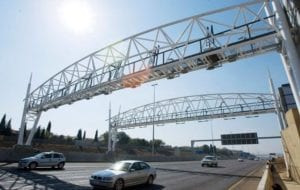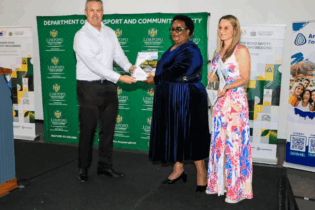Following Transport Minister’s announcement, Electronic Toll Collection (ETC) company would like, together with SANRAL, to engage with the government appointed task team to make recommendations to the President on the e-tolling issue.
For the past year, ETC has been engaging with transport professionals, academia and activists through a series of working groups hosted in partnership with the Transport Forum on the complexities surrounding e-tolls and road funding. These groups have been unpacking and interrogating different road funding solutions for South Africa which includes user-pay options. A comprehensive report gathering all the key insights and recommendations has been developed and ETC would like to present this valuable source of information to the task team. Amongst the findings are the following insights: User pay is the fairest and most equitable solution for major national road funding One of the major findings that emerged out of the working group sessions was that the user-pay principle is the most efficient and fair road funding model available to Gauteng. This position has been backed by national government and publicly stated by the President in statement releases by the Presidency following online exchanges by Premier David Makhura and Minister Tito Mbonweni. Public transport and emergency transport road users do not pay under this model and therefore user-pay does not negatively impact the poor or non-car owners. The fuel levy is not a viable solution for Gauteng’s freeway funding Despite calls from various groups including the Democratic Alliance and OUTA, the working groups found that the fuel levy alone is not enough to build and maintain South Africa’s roads. This view was supported by Mike Schussler, an independent economist who attended the ETC sessions and modelled various scenarios on using the fuel levy. He estimated that if all public transport was subsidised and if all taxis were exempt from the fuel tax, non-exempt road users would have to cough up an additional R10, per litre, in fuel tax. This is on top of the fact that the fuel levy is also a diminishing form of taxation that favours affluent drivers who can afford fuel efficient cars while public transport and people with less efficient cars end up paying more. This method of road funding is therefore not pro-poor. There needs to be a solution to debt repaymentThe reality is that scrapping e-tolls won’t change the fact that SANRAL has a legitimate debt to be paid for the costs incurred during the first phase of the Gauteng Freeway Improvement Project (GFIP).
While GFIP comprised an initial investment of R25-billion, this has subsequently ballooned to R47-billion in lieu of the low compliance rate of Gauteng road users to pay their e-tolls. Scrapping the e-tolling system would immediately require the settling of this enlarged bill. While yet another government bailout is being contemplated, which effectively means that the public’s tax money will still be used to repay the loan for Gauteng roads and funding taken away from other pressing social needs of the country. Write off historic debt – a possible solution Over the past year ETC has modelled several possible solutions to address SANRAL’s debt challenge and to provide a workable solution for the indebted road user. The company believes that the future of the e-tolling system lies in providing Gauteng drivers with an affordable way of paying back the debt with a quid pro quo option for compliant road users. One of the solutions proposed by the company is a historic write-off of debt in exchange for compliance. This would essentially mean that for every year of compliance, SANRAL would write off 20% of historical debt, meaning that after five years a newly compliant road user would be debt free. The proposal also considers providing existing and compliant road users with a reduction in future rates, rewarding these users for their historic and ongoing support of the system. This would leave room for SANRAL to restructure its balance sheet and a way for road users to become compliant without fear of legal summons. ETC says it’s doors remain open to all relevant role players and the task team to find an equitable and realistic funding solution for the nation.






